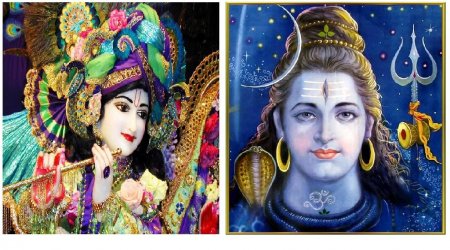- Sep 22, 2013
- 4,956
- 250
- 85
In the Dirty Harry film The Dead Pool, a serial killer is stalking celebrities, prompting the iconic American detective to become gritty on the streets.
This film presents a theme common to many symbolic stories in American folklore and cinema --- bad fortune.
The serial killer in The Dead Pool seems to be making sardonic comments about the vulnerability of popular characters and media personalities who are deemed as 'fortunate' in society, perhaps as an anti-social gesture meant to demonize and condemn the proverbial 'American Dream.'
In the famous Shakespeare play The Merchant of Venice, a sharp woman named Portia must rescue a man who is trapped in a death-contract to a cruel Jewish money-lender, and the ensuing 'court battle' prompts everyone to be a little bit more shrewd regarding contract enforcement leniency.
The concept of fortune is very important to human beings, since we use it to make comments on mortality, prosperity, and risk. Fortune evaluation guides many social contracts and business negotiations, since individuals and companies seek to maximize profits by scrutinizing risk.
When a Wall Street investor loses all of his assets during a stock market crash, we may make a comment such as, "This poor fellow is experiencing the back-end of a civilization fall-out!"
In other words, assessment of risk and profitability is vital to our analysis of fortune and negotiation.
Such a consciousness is 'investigated' in the fame-fortune sardonic film Celebrity (Woody Allen).
Do we pity those who take foolish risks or make contracts with untrustworthy parties, or do we condemn people for unwise decisions to feel like we are closely monitoring citizens' assessments of profitability-calculation?
Such questions are important in our new age of profiteerism-gauged networking (e.g., European Union, NATO, eTrade, etc.), which is why Hollywood (USA) incidentally makes films such as The Wolf of Wall Street.
Imagine you go to a nightclub and meet a beautiful young woman and decide to date her only to find out one week later she's your boss's daughter! Would you feel paranoid about your sense of 'sociability smartness'? You might say to yourself, "How could I have been so stupid as to not consider the possibility that I was risking my job by dating someone who resembled my boss?"
This is why I love the American comic book superhero Batman (DC Comics), a fictional masked urban vigilante who tackles the criminally insane in a place called Gotham City. Batman deals with bizarre maniacs such as Two-Face (an extremist punisher), Poison Ivy (an eco-terrorist), and the Riddler (a death-trap trickster) who pit Batman in situations where he must lift people out of 'risk-pits' to salvage the sanity and security of all Americans.
Maybe 'fortune storytelling' is the new 'folk tradition,' and 'Wall Street psychiatry' is the new 'religion.'

This film presents a theme common to many symbolic stories in American folklore and cinema --- bad fortune.
The serial killer in The Dead Pool seems to be making sardonic comments about the vulnerability of popular characters and media personalities who are deemed as 'fortunate' in society, perhaps as an anti-social gesture meant to demonize and condemn the proverbial 'American Dream.'
In the famous Shakespeare play The Merchant of Venice, a sharp woman named Portia must rescue a man who is trapped in a death-contract to a cruel Jewish money-lender, and the ensuing 'court battle' prompts everyone to be a little bit more shrewd regarding contract enforcement leniency.
The concept of fortune is very important to human beings, since we use it to make comments on mortality, prosperity, and risk. Fortune evaluation guides many social contracts and business negotiations, since individuals and companies seek to maximize profits by scrutinizing risk.
When a Wall Street investor loses all of his assets during a stock market crash, we may make a comment such as, "This poor fellow is experiencing the back-end of a civilization fall-out!"
In other words, assessment of risk and profitability is vital to our analysis of fortune and negotiation.
Such a consciousness is 'investigated' in the fame-fortune sardonic film Celebrity (Woody Allen).
Do we pity those who take foolish risks or make contracts with untrustworthy parties, or do we condemn people for unwise decisions to feel like we are closely monitoring citizens' assessments of profitability-calculation?
Such questions are important in our new age of profiteerism-gauged networking (e.g., European Union, NATO, eTrade, etc.), which is why Hollywood (USA) incidentally makes films such as The Wolf of Wall Street.
Imagine you go to a nightclub and meet a beautiful young woman and decide to date her only to find out one week later she's your boss's daughter! Would you feel paranoid about your sense of 'sociability smartness'? You might say to yourself, "How could I have been so stupid as to not consider the possibility that I was risking my job by dating someone who resembled my boss?"
This is why I love the American comic book superhero Batman (DC Comics), a fictional masked urban vigilante who tackles the criminally insane in a place called Gotham City. Batman deals with bizarre maniacs such as Two-Face (an extremist punisher), Poison Ivy (an eco-terrorist), and the Riddler (a death-trap trickster) who pit Batman in situations where he must lift people out of 'risk-pits' to salvage the sanity and security of all Americans.
Maybe 'fortune storytelling' is the new 'folk tradition,' and 'Wall Street psychiatry' is the new 'religion.'

